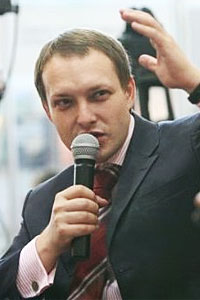Russian President Vladimir Putin is changing his tune about the doping scandal that has engulfed Russian Olympic and paralympic athletes. As proof mounts that the use of performance-enhancing drugs is a state-sponsored system in Russia, Mr Putin appears less and less willing to cooperate with international sports organisations and increasingly inclined to complain about political conspiracies against his country.
The issue is no longer just Russian athletes' participation in the Rio Olympics: It's about Mr Putin's state being labelled as criminal. Mr Putin's reaction under these circumstances -- as when a Malaysian airliner was shot down over eastern Ukraine two years ago and Russia and its proxies were implicated -- is to deny, deny, deny.
As recently as March, an irritated Mr Putin told government officials, including Sports Minister Vitaly Mutko, that there was "no need to politicise anything or push any conspiracy theories". His message was that Russia would win fair and cheaters held to account. On Tuesday, as the International Olympic Committee weighed responses to the latest damning report from the World Anti-Doping Agency (Wada), all Mr Putin did was politicise things and push conspiracy theories. He compared the doping accusations to the Western boycott of the 1980 Moscow Olympics.
Now we are watching a repeat of political interference with sports. The forms of this interference have changed, but the idea is the same: To make sports an instrument of geopolitical pressure, of forming a negative image of countries and peoples.
In the statement, Mr Putin mentioned a widely reported draft of a letter to the IOC penned by United States Anti-Doping Agency (Usada) Chief Executive Officer Travis Tygart, in which Mr Tygart called for Russian athletes to be banned from the Rio Games. Mr Putin suggested Usada officials had seen the Wada report before publication or even "determined its tone and content". If so, the statement said "a national structure of one state is dictating its will to the entire global sports community".
There is a reason Mr Putin is doing what he specifically told his underlings to avoid just a few months ago. The Wada report, authored by Canadian lawyer Richard McLaren, establishes for the first time that the doping system in Russian sports was state-run. The Moscow doping lab, according to the report, routinely relayed adverse findings against Russian and foreign athletes to the sports ministry and was told whether to "save" or "quarantine" the urine samples that contained traces of forbidden substances. "Saving" meant reporting a negative result on a positive test. "Quarantining" meant observing the standard procedure -- a code that usually applied only to foreigners and less promising Russian athletes not expected to win medals.
The report found bottles containing urine samples with steroids were passed to a secret police agent who had a way of opening and resealing them, and the doped athletes' urine was replaced with "clean" urine. At the 2014 Sochi winter Olympics, lab workers passed samples through a "mouse hole" to an adjacent room and got them back "clean" -- but only for athletes on a special "state programme" list. Russia won the most medals at the Sochi Olympics, and not a single one of its athletes was disqualified for doping.
Wada owes its understanding of the scheme to Dr Grigory Rodchenkov, the former head of the Moscow doping lab who is now in the US, telling all. In his statement, Mr Putin tries to discredit the witness, saying Dr Rodchenkov had been investigated by Russian law enforcement in 2012 for doping violations but the charges didn't stick; now, Mr Putin wrote, the investigation has resumed. Mr Putin implied Dr Rodchenkov was untrustworthy and Wada shouldn't have relied "exclusively on the testimony of people of this kind."
The tactic is as lame now as it was when it was used in the aftermath of the downing of the MH17 over rebel-held territory in Ukraine, when Russia brushed aside compelling evidence of Russian involvement. The McLaren report describes in detail how Dr Rodchenkov's claims were checked using samples that had been sent from Moscow to an independent testing facility in Switzerland. An independent expert confirmed that the bottles had been opened and resealed, and in many of the samples, the DNA didn't match the athlete.
As with the airliner, the denials are ceremonial. Mr Putin cannot admit the doping system ran into the upper reaches of his government and that the secret police, where he spent a large part of his career, was also involved. Such an admission would be tantamount to admitting a pathology of state-sponsored cheating.
It would be tantamount to agreeing with Elena Panfilova, who runs the Russian chapter of corruption watchdog Transparency International. She wrote on Facebook:
In a country where small and medium-sized business, the rule of law and human rights have been swept under the rug, everything has long run on doping: Regions and cities are doped with subsidies, the arts and sciences with financial handouts from ministries, business with the heavy drug of regulated access to state contracts.
Mr Putin won't admit he's running a doped-ng a judo move clings to the self-image of a global leader resisting US imperialism. To his voters, Russia must remain a great country suffering from Western injustice. It can't be represented by a gang of crooks passing bottles of urine through a mouse hole.
That is far more important than the ability of Russian athletes to compete in Rio, which the IOC on Tuesday declined to take away. Russia will probably take part -- and do so under a heavy cloud of suspicion. ©2016 Bloomberg View
Leonid Bershidsky is a Bloomberg View columnist based in Berlin.
